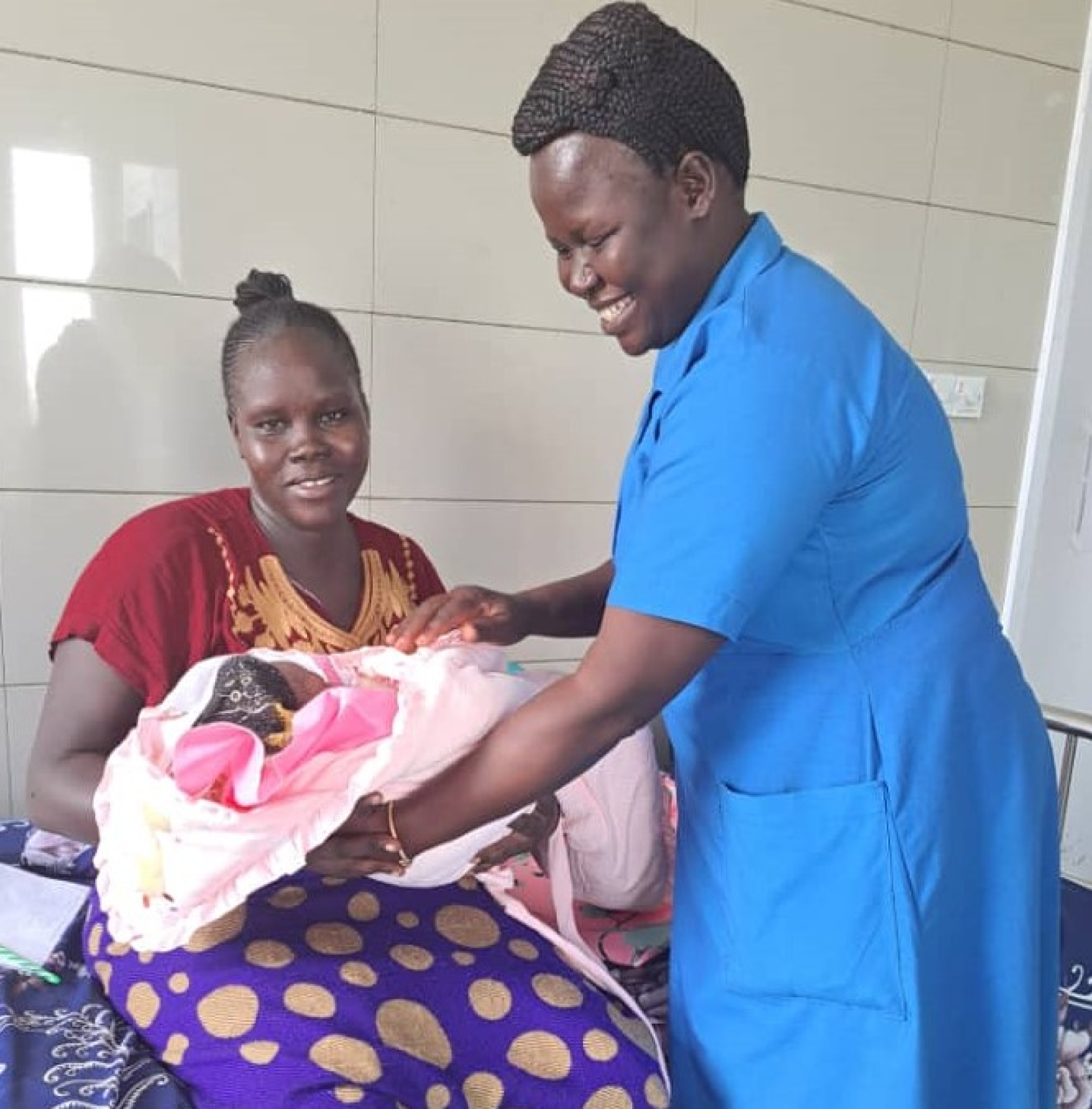Strengthening South Sudan’s Health System: How UN Efforts Are Saving Lives
The UN’s collaborative efforts in South Sudan’s health sector are laying the foundation for a healthier and more resilient nation.
As the world marks International Health Day, it is important to reflect on the strides made in strengthening healthcare systems. In South Sudan, where access to healthcare remains a critical concern, the United Nations has been instrumental in strengthening the health sector and providing essential health services. Through various agencies, including the World Health Organization (WHO), The Joint United Nations Program on HIV and AIDS (UNAIDS), the United Nations Population Fund (UNFPA), the United Nations Development Program (UNDP) with funding from the Global Fund, and UNICEF. The UN has played a vital role in expanding healthcare services, improving maternal and child health, combating HIV/AIDS, Tuberculosis and other infectious diseases, and strengthening the health infrastructure. These efforts contribute directly to the Sustainable Development Goals (SDGs), particularly SDG 3 (Good Health and Well-being), SDG 6 (Clean Water and Sanitation), and SDG 17 (Partnerships for the Goals).
Expanding Healthcare Services and Disease Control
The World Health Organization (WHO) has been at the forefront of public health interventions in South Sudan, ensuring that essential healthcare services reach vulnerable populations. WHO supported nationwide vaccination campaigns that reached 3.7 million people with polio vaccines and 4 million people with cholera vaccines in the first quarter. WHO also, responded to disease outbreaks, and provided training to healthcare workers to improve emergency response capacity. Through its efforts, South Sudan has seen progress in reducing the burden of preventable diseases, including measles, cholera, and malaria, aligning with SDG 3’s target of reducing mortality from communicable diseases.
Fighting HIV/AIDS and Promoting Public Health
UNAIDS has been working closely with local health institutions and international partners to combat HIV/AIDS in South Sudan. By promoting awareness, facilitating access to antiretroviral therapy, and reducing stigma, UNAIDS has contributed to a decline in new infections and improved the quality of life for those living with HIV. The agency’s initiatives also focus on vulnerable populations, ensuring that testing and treatment services are widely available, supporting SDG 3’s goals of ending the AIDS epidemic. HIV remains a public health concern in South Sudan, with an estimated 140,000 people living with HIV with over 8,100 new infections as of 2023. Despite a 45% reduction in new infections since 2010, South Sudan is lagging compared to the regional average of 59% reduction during the same time, largely due to legal and structural barriers, and funding limitations,
Maternal and Child Health Services
UNFPA has been pivotal in promoting maternal and reproductive health services in South Sudan. By providing medical supplies, supporting midwifery training, and ensuring access to life-saving interventions, UNFPA has helped reduce maternal and newborn mortality rates. Through mobile health clinics and community outreach programs, thousands of women now have access to essential prenatal and postnatal care, making childbirth safer across the country. These efforts directly contribute to SDG 3 and SDG 5, which seeks to ensure universal access to reproductive health services.

Improving care and Strengthening Health Infrastructure Through the UNDP- Global Fund Partnership
UNDP, with funding from the Global Fund, and in partnership with the ministry of Health, has improved care for people living with HIV and Tuberculosis and invested in strengthening South Sudan’s healthcare infrastructure. Through the procurement, storage and distribution of AIDs, TB drugs and laboratory reagents, the Global Fund partnership ensures access to vital medicines and therapeutics in 245 hospitals and health facilities across the country. In 2024 alone, 72,937 (64% F) people living with HIV and 2,790 HIV -positive pregnant women accessed ART services, while the TB Treatment Success Rate improved to 84% with 9,301 out of 11,089 diagnosed cases successfully treated.
Several health facilities including laboratories, delivery wards, outpatient departments, have been constructed, equipped and are now functional. The technical capacity of the laboratory staff, midwives, clinicians, medical doctors and nurses has also been strengthened. Hospitals and other health institutions have also been installed with solar power to improve energy access, and ease service delivery. In 2024 alone, solar energy systems were installed in 10 health facilities, with 18 more health facilities targeted in 2025. Support has also been extended towards medical oxygen production and safe disposal of medical, pharmaceutical and hazardous waste through the purchase and installation of oxygen plants and high-grade medical incinerators respectively. These investments align with SDG 9’s goal of building resilient infrastructure to support sustainable development
Building a Resilient Health System
UNICEF has played a critical role in ensuring that healthcare services are accessible to children and mothers. From immunization drives to nutrition programs, UNICEF’s interventions have addressed both immediate and long-term health challenges, building a more resilient healthcare system that can withstand future crises. Additionally, efforts have been made to provide clean water and sanitation in schools, public places and healthcare facilities.
These initiatives are directly contributing to the achievement of multiple SDGs, including SDG 3 (Good Health and Well-being), SDG 5 (Gender Equality), SDG 6 (Clean Water and Sanitation), SDG 9 (Industry, Innovation, and Infrastructure), and SDG 17 (Partnerships for the Goals). Continued investment in health is essential to achieving sustainable development and ensuring that every South Sudanese has access to quality healthcare services.








